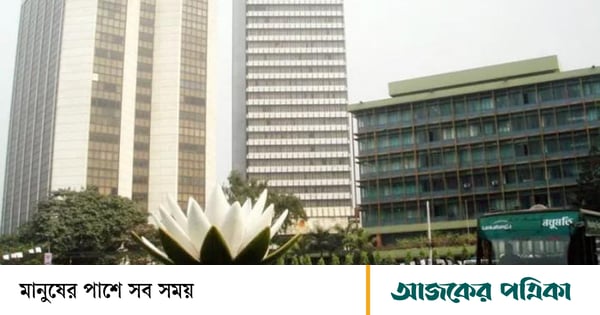Moody's has downgraded Bangladesh's banking sector citing lack of transparency, lack of financial security and deteriorating customer confidence. Moody's, a world-renowned credit rating agency, announced this decision on Tuesday. A day earlier, the agency downgraded Bangladesh's sovereign rating to B2 from B1. Also changed the stable outlook to 'Negative'.
This downgrade of credit rating means further weakening of the country's banking sector. As a result, the country's economic environment is likely to become more difficult, thereby increasing risks for investors. In addition, financial instability, low growth and risk of debt default may increase. These can have a negative impact on the bank's lending capacity and profitability.
Moody's report said, 'We expect the number of non-performing loans (NPLs) to increase in the short term due to the central bank's (Bangladesh Bank) asset quality initiatives. But it will help in increasing the overall stability.' The agency also said the funding and liquidity of most banks remained relatively stable despite increased asset quality risks.
For the past few years, the banking sector of Bangladesh has fallen into one crisis after another. Non-performing loans have increased, creating liquidity crunches and weakening governance. As of September this year, the outstanding debt of the country has increased to a record 2 lakh 84 thousand 977 crores. This situation is mainly due to weakness in credit risk assessment, political influence and lax supervision of Bangladesh Bank.
In the past few years, some private Sharia-based banks and state-owned banks have been involved in major scams in the banking sector in terms of non-performing loans. These loans are mainly related to individuals and institutions related to the previous Awami League government. As a result public confidence in the banking sector has been severely damaged. At the same time various operational problems including liquidity crisis have arisen.
Moody's said in their sovereign rating analysis, 'We fear that many politically related loans will default during the tenure of Sheikh Hasina's government. As a result, the structural weakness of the country's banking system will increase. Moody's also believes that the financial expenditure of the government will increase in the banking sector reform. The agency said weak governance in the banking system contributed to the asset quality crisis. Besides, the policy deterioration is disrupting the financial stability of the country.
Besides downgrading the sovereign rating, Moody's has also downgraded the ratings of six Bangladeshi banks. The banks are – BRAC Bank, City Bank, Dutch-Bangla Bank, Eastern Bank, Mercantile Bank and Premier Bank.
BRAC Bank's long-term local and foreign currency deposit rating has been downgraded to B2 from B1. Ratings of Mercantile Bank and Premier Bank have been downgraded to B3 from B2. However, the rating of City Bank, Eastern Bank and Dutch-Bangla Bank has been maintained at B2 position. Moody's said, 'We have changed the outlook on the long-term deposit ratings of these six banks from stable to negative.'
Note that in the banking sector, when an organization has a rating of B1, it means that the bank is at risk of bankruptcy and a B2 rating means that these banks are more risky. It is necessary to take interim and long-term preventive measures on an urgent basis to save these banks from bankruptcy.

